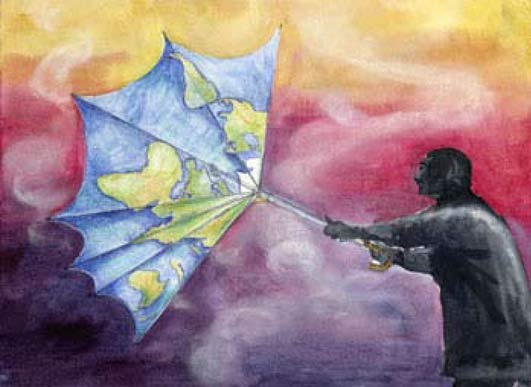 Bright sunshine and a cool breeze this early-evening Tuesday on California’s north coast — another good-as-it-gets episode.
Bright sunshine and a cool breeze this early-evening Tuesday on California’s north coast — another good-as-it-gets episode.
According to the Northern California Weather Blog, posted yesterday, there’s another High pressure system along the shoreline, making temperatures 5-to-10-degrees above normal, though, gusty north winds created a cooler feel to the air.
Little River Beach with the dogs this morning was gorgeous, very-little breeze then, and warmer.
Weather by virtue of being an in-your-face situation — if you go outside while it’s raining, you’re going to get some degree of wet — has become a major factor in daily nowadays life. Some places have shit for weather, while others (like along the coasts) right now have a way-livable environment.
Of course, simplifying a complicated situation. Yet the whole concept of weather being effected/affected by changes in the earth’s temperature is simple: It’s getting fucking hot!
And critical: ‘Earlier this month, a campaign led by Public Citizen sent a letter to the presidents and CEOs of ABC, CBS, Fox, NBC, MSNBC, and CNN demanding that their networks and newsrooms “call the climate crisis transforming the Earth exactly what it is: a climate crisis.”‘
The physical scale of climate change is quickly, rapidly escalating upward — there’s new-research shit every week on how some climate change problem is worse that predicated, and getting worse.
A report issued just last week indicated the Canadian Arctic is thawing 70 years earlier than predicted — supposedly the melting of this particular permafrost wasn’t set to start disappearing until 2090.
Yipes!
New research also revealed that between 2003 and 2016 permafrost melt was up to 240-percent higher than previous years.
Per the Guardian this afternoon:
“What we saw was amazing,” Vladimir Romanovsky, a professor of geophysics at the university, told Reuters.
“It’s an indication that the climate is now warmer than at any time in the last 5,000 or more years.“
With governments meeting in Bonn this week to try to ratchet up ambitions in United Nations climate negotiations, the team’s findings, published on 10 June in Geophysical Research Letters, offered a further sign of a growing climate emergency.
…
“It’s a canary in the coalmine,” said Louise Farquharson, a postdoctoral researcher and co-author of the study.
“It’s very likely that this phenomenon is affecting a much more extensive region and that’s what we’re going to look at next.“
Scientists are concerned about the stability of permafrost because of the risk that rapid thawing could release vast quantities of heat-trapping gases, unleashing a feedback loop that would in turn fuel even faster temperature rises.
Even if current commitments to cut emissions under the 2015 Paris agreement are implemented, the world is still far from averting the risk that these kinds of feedback loops will trigger runaway warming, according to models used by the UN-backed Intergovernmental Panel on Climate Change.
With scientists warning that sharply higher temperatures would devastate the global south and threaten the viability of industrial civilisation in the northern hemisphere, campaigners said the new paper reinforced the imperative to cut emissions.
“Thawing permafrost is one of the tipping points for climate breakdown and it’s happening before our very eyes,” said Jennifer Morgan, executive director of Greenpeace International.
“This premature thawing is another clear signal that we must decarbonise our economies, and immediately.”
And last Thursday, Greenland lost 40-percent of its ice in just that one day — total ice loss estimated to be more than 2 gigatons (equal to 2 billion tons).
Other than that…
(Illustration above: Artwork from the UN’s International Children’s Painting Competition, found here).